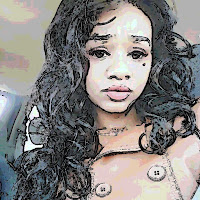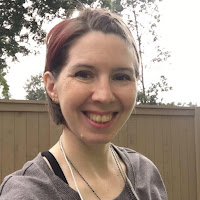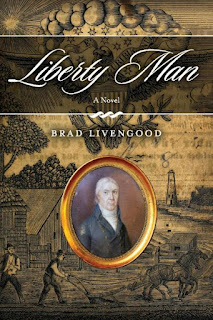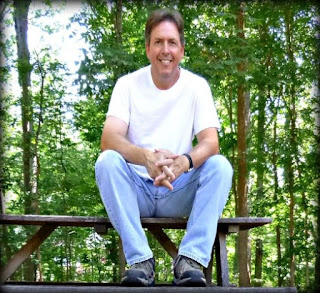Today we are interviewing Catelyn Critchfield-Wilson, author of the regency romance / historical fiction novel "Finding Eleanor."
Tell us a bit about yourself.
I'm 21 years old I'm married and live in San Antonio, Texas with my husband, Taylor, and my dog. I'm studying English and creative writing and I have one year left before I graduate. Finding Eleanor is my 1st book I've published but I've been writing since I was in 4th grade. I'm a triplet, the youngest of 5 children, and I grew up mostly in Australia.
Describe the plot of your new book, “Finding Eleanor,” in a few sentences.
Eleanor is a young woman who loves poetry and writing, but her father does not approve. When her father unexpectedly inherits a title, she is unable to pursue her dreams. She meets her neighbor, Martin, who seems to understand her like no one else. When her family discovers something she has been hiding, the pair must decide what to do.
Who do you think would most appreciate this book?
I feel that most women would appreciate this book because it looks at things that women had to deal with in the past, but we get to see how far we've come, and to appreciate all the choices that we have now. Plus, a little bit of romance never hurt anybody.
Overcoming oppressive cultural realities is a major theme in your book. Was this something you always knew you wanted to incorporate into your story? Or was it something that evolved as you wrote?
The day to day reality for women in the regency era was a lot harsher than what we experience now. While books like Pride and Prejudice obviously show part of the struggles women had and how they had to get married, have a male relative support them, or they would have to be begging on the streets; I wanted to show this with a more relatable character who has a little bit of a more modern feel.
I didn't just want to write a romance I wanted to include what it would have really been like for a woman back then and how if you didn't get married, especially if your parents didn't provide a dowry, you would have been In deep trouble. Also wanted to show how Eleanor doesn't just accept what's handed to her.
Tell us about your protagonist, Eleanor.
Eleanor is a 19 year old woman who grew up, not necessarily in poverty, but definitely without a lot of comforts. She always loved poetry and was able to study more than a woman would have usually been able to, because her father wanted to provide a way for her to make money either as a governess or a school teacher.
Eleanor also speaks her mind, perhaps a little bit more than other people would like. She isn't afraid to tell people when they've done something wrong, and at times that can get under some someone’s skin.
Eleanor’s life changes dramatically when her father becomes the Earl of Bowland. Tell us about what this transition is like for her.
Eleanor's transition from being the daughter of someone who was little more than a farmer, to being the daughter of an Earl was really hard for her. She knew she wouldn’t be able to pursue her passions because everybody was watching, and that was the hardest part for her; dealing with people who were in the higher circles of society, who paid attention to every little mistake, particularly the ones women could make, and use it against her and her family.
Martin is an interesting character who must make complicated decisions. Can you share with us a bit about his challenges?
Martin's challenges arise chiefly from his brother. He was never supposed to inherit the title from his father, but when his brother was disowned, he’s forced to pick up the slack and care for his mother, two younger sisters, and a younger brother all of whom completely depend on him. He has to protect his sister's reputations, especially because of how his older brothers immoral actions reflect badly on them, and could affect them in the future, leading to little or no prospects of marriage. This leaves him a bit jaded. He’s quick to believe the worst in people as you're able to see in the story when it comes to Eleanor.
Eleanor is torn between her own desires and her duty to her family. Can you elaborate on Eleanor’s societal obligations and how she feels about them?
A woman's social obligation, especially a woman who is the daughter of someone with a title such as an Earl, is expected to make a marriage that will reflect well on the family, especially because dowries are involved. That means money is involved and women are expected to marry above their station in order to have a comfortable life and provide for their children. So as the daughter of an Earl, she needs to marry someone who at least matches him in rank or is at least rich enough to make rank matter a little less.
Her actions also reflect directly on her sister Lucy, as she is unmarried, and if she were to make a poor match, or do something that is deemed unacceptable by society, her sister would suffer by it, simply by being related to her.
What drew you to the regency romance / historical fiction genre?
I've always love the genre. I started reading Pride and Prejudice when I was I think 12. So when I found that people wrote about the era as modern writers, I thought it was really wonderful to include things that and are familiar to us now, while still remaining true to the era, and using it as a good setting, as well as a way to discuss pertinent problems.
What inspirations contributed to “Finding Eleanor”?
I usually draw inspiration from the people around me. It's hard to make a person seem realistic from scratch, without real character flaws, funny habits, or things like that. Also, just things like Pride and Prejudice, the idea of daughters needing to make suitable marriages was a big influence to me because it is so important.
Is there an author that had a major influence on your writing style?
I have to say Jane Austen because she's the master of the genre, obviously, and I especially like the way she uses irony and wit with her characters to make certain situations stand out more and help you pay attention to them.
Who was your favorite character to write?
My favorite character to write would have to be Albert who is Martin's best friend from childhood. He’s just a very genuine person who's gone through similar things as Martin, but has perhaps learned to handle them, without allowing himself to feel like the universe is punishing him.
How do you think you've evolved as a writer since when you first started?
I'd like to think I changed a lot since my elementary school days when I first learned about creative writing and how to write a story. Being a creative writing major has also helped a lot, to learn more about my skills and to improve them, I think I've gotten better at making characters more realistic and using them to drive the story forward.
Are there any aspects (e.g. character building, world building) of your writing that you've been practicing?
I've been practicing a lot with my characters, making them feel like real people. I never want a reader to question why a character did what they did, and not understand the motivation. It’s one of the things a teacher told me to work on, and I've been doing my best to make 3 dimensional characters.
What are your goals as a writer for the next ten years?
To write more books of course! I've been writing for so long I can’t imagine stopping now. I'd love to write more historical fiction novels, as well as dabble in other genres such as young adult.
How have your readers responded to “Finding Eleanor” so far?
The initial response to reading my book has been very positive so far. Many readers say that they like Eleanor, and can relate to the situation she's in, especially with her family, and that the struggles she faces with pleasing everyone around her, speaks to them.
One of my friends said she really like the romance aspect because it felt real and not forced.
Is there any aspect of writing you don't like?
I used to hate editing because it used to hurt my feelings, because I'd spend so many hours working on a book only to have it ripped to shreds. but now I understand how important it is and no one can write a very good book the 1st time around. As long as you have an open mind when you're editing and making changes you'll be able to have a much better finished product than what you could have done by yourself.
Have you ever had writer's block? If yes, how'd you deal with it? If you have not had writer's block, why do you think you haven't?
The only time I've ever had writer's block is when I'm told I have to write something, either for a class or whatever it may be, because I'm used to choosing what I want to a write, and working on it. So I'd have to say the only time I've struggled is when I'm told to write a short story, because I can never condense a plot into less than a 100 pages.
What do you have in mind for your next project?
I've already started writing my next book it's another historical fiction, regency romance novel, and is based around an artist who wants a grand tour and a former soldier returned from the East Indies.
Is there anything else you'd like potential readers to know about your book?
Just a fun little fact is I set the story in Lancaster in Lancashire, England and that is a real place. I've used a couple of landmarks and if you ever want to visit where I set the story, you can!
Book Description for "Findign Eleanor":
Buy "Finding Eleanor" on Amazon.
Like the author on Facebook.
Follow the author on Instagram.
I'm 21 years old I'm married and live in San Antonio, Texas with my husband, Taylor, and my dog. I'm studying English and creative writing and I have one year left before I graduate. Finding Eleanor is my 1st book I've published but I've been writing since I was in 4th grade. I'm a triplet, the youngest of 5 children, and I grew up mostly in Australia.
Describe the plot of your new book, “Finding Eleanor,” in a few sentences.
Eleanor is a young woman who loves poetry and writing, but her father does not approve. When her father unexpectedly inherits a title, she is unable to pursue her dreams. She meets her neighbor, Martin, who seems to understand her like no one else. When her family discovers something she has been hiding, the pair must decide what to do.
Who do you think would most appreciate this book?
I feel that most women would appreciate this book because it looks at things that women had to deal with in the past, but we get to see how far we've come, and to appreciate all the choices that we have now. Plus, a little bit of romance never hurt anybody.
Overcoming oppressive cultural realities is a major theme in your book. Was this something you always knew you wanted to incorporate into your story? Or was it something that evolved as you wrote?
The day to day reality for women in the regency era was a lot harsher than what we experience now. While books like Pride and Prejudice obviously show part of the struggles women had and how they had to get married, have a male relative support them, or they would have to be begging on the streets; I wanted to show this with a more relatable character who has a little bit of a more modern feel.
I didn't just want to write a romance I wanted to include what it would have really been like for a woman back then and how if you didn't get married, especially if your parents didn't provide a dowry, you would have been In deep trouble. Also wanted to show how Eleanor doesn't just accept what's handed to her.
Tell us about your protagonist, Eleanor.
Eleanor is a 19 year old woman who grew up, not necessarily in poverty, but definitely without a lot of comforts. She always loved poetry and was able to study more than a woman would have usually been able to, because her father wanted to provide a way for her to make money either as a governess or a school teacher.
Eleanor also speaks her mind, perhaps a little bit more than other people would like. She isn't afraid to tell people when they've done something wrong, and at times that can get under some someone’s skin.
Eleanor’s life changes dramatically when her father becomes the Earl of Bowland. Tell us about what this transition is like for her.
Eleanor's transition from being the daughter of someone who was little more than a farmer, to being the daughter of an Earl was really hard for her. She knew she wouldn’t be able to pursue her passions because everybody was watching, and that was the hardest part for her; dealing with people who were in the higher circles of society, who paid attention to every little mistake, particularly the ones women could make, and use it against her and her family.
Martin is an interesting character who must make complicated decisions. Can you share with us a bit about his challenges?
Martin's challenges arise chiefly from his brother. He was never supposed to inherit the title from his father, but when his brother was disowned, he’s forced to pick up the slack and care for his mother, two younger sisters, and a younger brother all of whom completely depend on him. He has to protect his sister's reputations, especially because of how his older brothers immoral actions reflect badly on them, and could affect them in the future, leading to little or no prospects of marriage. This leaves him a bit jaded. He’s quick to believe the worst in people as you're able to see in the story when it comes to Eleanor.
Eleanor is torn between her own desires and her duty to her family. Can you elaborate on Eleanor’s societal obligations and how she feels about them?
A woman's social obligation, especially a woman who is the daughter of someone with a title such as an Earl, is expected to make a marriage that will reflect well on the family, especially because dowries are involved. That means money is involved and women are expected to marry above their station in order to have a comfortable life and provide for their children. So as the daughter of an Earl, she needs to marry someone who at least matches him in rank or is at least rich enough to make rank matter a little less.
Her actions also reflect directly on her sister Lucy, as she is unmarried, and if she were to make a poor match, or do something that is deemed unacceptable by society, her sister would suffer by it, simply by being related to her.
What drew you to the regency romance / historical fiction genre?
I've always love the genre. I started reading Pride and Prejudice when I was I think 12. So when I found that people wrote about the era as modern writers, I thought it was really wonderful to include things that and are familiar to us now, while still remaining true to the era, and using it as a good setting, as well as a way to discuss pertinent problems.
What inspirations contributed to “Finding Eleanor”?
I usually draw inspiration from the people around me. It's hard to make a person seem realistic from scratch, without real character flaws, funny habits, or things like that. Also, just things like Pride and Prejudice, the idea of daughters needing to make suitable marriages was a big influence to me because it is so important.
Is there an author that had a major influence on your writing style?
I have to say Jane Austen because she's the master of the genre, obviously, and I especially like the way she uses irony and wit with her characters to make certain situations stand out more and help you pay attention to them.
Who was your favorite character to write?
My favorite character to write would have to be Albert who is Martin's best friend from childhood. He’s just a very genuine person who's gone through similar things as Martin, but has perhaps learned to handle them, without allowing himself to feel like the universe is punishing him.
How do you think you've evolved as a writer since when you first started?
I'd like to think I changed a lot since my elementary school days when I first learned about creative writing and how to write a story. Being a creative writing major has also helped a lot, to learn more about my skills and to improve them, I think I've gotten better at making characters more realistic and using them to drive the story forward.
Are there any aspects (e.g. character building, world building) of your writing that you've been practicing?
I've been practicing a lot with my characters, making them feel like real people. I never want a reader to question why a character did what they did, and not understand the motivation. It’s one of the things a teacher told me to work on, and I've been doing my best to make 3 dimensional characters.
What are your goals as a writer for the next ten years?
To write more books of course! I've been writing for so long I can’t imagine stopping now. I'd love to write more historical fiction novels, as well as dabble in other genres such as young adult.
How have your readers responded to “Finding Eleanor” so far?
The initial response to reading my book has been very positive so far. Many readers say that they like Eleanor, and can relate to the situation she's in, especially with her family, and that the struggles she faces with pleasing everyone around her, speaks to them.
One of my friends said she really like the romance aspect because it felt real and not forced.
Is there any aspect of writing you don't like?
I used to hate editing because it used to hurt my feelings, because I'd spend so many hours working on a book only to have it ripped to shreds. but now I understand how important it is and no one can write a very good book the 1st time around. As long as you have an open mind when you're editing and making changes you'll be able to have a much better finished product than what you could have done by yourself.
Have you ever had writer's block? If yes, how'd you deal with it? If you have not had writer's block, why do you think you haven't?
The only time I've ever had writer's block is when I'm told I have to write something, either for a class or whatever it may be, because I'm used to choosing what I want to a write, and working on it. So I'd have to say the only time I've struggled is when I'm told to write a short story, because I can never condense a plot into less than a 100 pages.
What do you have in mind for your next project?
I've already started writing my next book it's another historical fiction, regency romance novel, and is based around an artist who wants a grand tour and a former soldier returned from the East Indies.
Is there anything else you'd like potential readers to know about your book?
Just a fun little fact is I set the story in Lancaster in Lancashire, England and that is a real place. I've used a couple of landmarks and if you ever want to visit where I set the story, you can!
Book Description for "Findign Eleanor":
A Regency Romance to take you to another place and time, overcoming oppressive cultural realities, finding love and watching it dwindle away, out of reach but never out of mind, or out of heart. Maybe it is your turn to Find Eleanor!!! Maybe it will help someone find You.
Catelyn paints a brilliant picture from an era near the Bronte's and from a world of customs and etiquette not far enough removed to be unseen. Look at a love story from within the numbers of the Ton.More Information
Buy "Finding Eleanor" on Amazon.
Like the author on Facebook.
Follow the author on Instagram.











